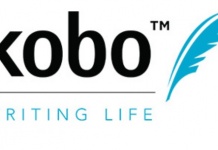Encouraging evidence that French writers, rather than French politicians, are not inherently hostile to the new environment of digital disruption and self publishing, and even see ways to make it work for them, comes in the form of this post in the Francophone blog L’édition innove, the blog of the Labo de l’édition, Paris’s two-year-old publishing laboratory, set up to bridge the gap between traditional publishing and the new digital technologies. The post covers self publishing alternatives already open to French writers as well as Anglophones, such as Kindle Direct Publishing or the implementation of Kobo Writing Life in cooperation with the Fnac book chain. The writer also leans, though, on a model that carries some hints of the kind of publishing-led attempt to co-opt self-publishing authors as seen in Penguin Random House’s Author Solution: co-publishing.

L’édition innove’s author specifically describes this as “the publishing industry deciding to capitalize on the good practices of self-publishing,” and introduces it as “a concept invented par Marcello Vena, Director of Digital Development at RCS Libri … e co-publishing designates an economic model based on complementarity between the traditional publishing sector and self-publishing.” One early experimental initiative was You Crime, a collaboration between young authors and Italian publishing house Rizzoli in July 2013. And aside from the release of the resulting competition winners as ebooks, it’s not clear how far this departs from a traditional short story or anthology contest.
The article poses the question “Co-publishing: A viable economic alternative?” without exactly answering it, though it does list along the way quite a few French and international resources for community-building and collaboration between self published authors and some publishing houses, such as Groupe Editis’s Place des éditeurs, or the very French – despite its name – WeLoveWords.com. One question, interestingly, that doesn’t get asked is whether all this co-publishing push is simply designed to lure self-publishing independents back into the traditional publishing camp, with far more benefits for the latter than the former. But at least it’s good to see that the French are genuinely exploring this, and by no means as reactionary about it as some of their politicians would have us believe.

































